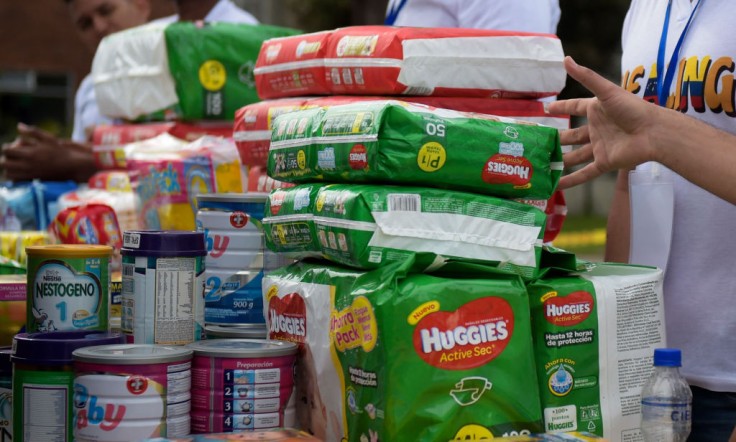
Parents struggling to make ends meet due to the price increase of basic goods are forced to scrape poop off their baby's disposable diapers so they can use these again.
Gloucestershire Bundles, a charity organization helping families secure diapers, toiletries, clothes, and toys for the kids, revealed that some parents could no longer afford to buy costly new diapers. Their agency could only do so much to help as they have also received a 30 percent increase in families asking for donations for hygiene products.
The charity's founder, Dawn Dolphin, told Gloucestershire Live that other baby banks are also challenged to help out as donations have dwindled since the pandemic. She recalled an incident where a mom had been making every penny count, so when her baby fell ill with a stomach issue, she reused the diapers when the supplies ran out.
She is just one of many parents trying to budget the family's expenses, which usually go to food purchases instead of the other necessities. Aside from diapers, parents who live from paycheck to paycheck on low wages can't also afford to buy cribs, strollers, or beds for their growing children.
Read Also: Former Walmart Staff Brandon Tamayo Never Reported Moms Stealing Expensive Milk or Diapers
"We would like to be able to help those who come to us," Dolphin said. "But without the donations coming in we have to dip into our budget and go out and buy these items."
Working Together to Address Hygiene Insecurity
Gloucestershire Bundles has been running events in the U.K. to raise funds or collect diaper donations via their Facebook page. In the U.S., similar problems with price increase has baby banks and charities also working double time to gather the essentials for families and address hygiene insecurity.
The Babies' Place Diaper Bank in Wisconsin said that diapers and baby wipes take up 25 percent of a family's monthly budget. Mallory McGivern has been running the charity organization to ensure that children's hygiene, aside from their nutrition, is also considered.
In Connecticut, communities have joined hands with locals and nonprofits in distributing hygiene products to low-income families. Greenwich Hospital spearheaded the drive, with many frontliners and hospital workers donating to the cause.
Margaret Tjimos Goldberg, the executive director of Neighbor to Neighbor, told Greenwich Times that the initiative for babies and young children had been warmly appreciated. It comes as Neighbor to Neighbor is set to open a new facility in the area.
The Cost of Diapers
Meanwhile, according to Real Diapers.Org, the average cost of diapers for one baby is $70 a month. A single piece of a disposable diaper is about $0.29. Babies use up at least eight diapers within 24 hours, or about 6,000 diapers within the first two years, as the child transitions to using the toilet.
More than 95 percent of parents rely on disposable diapers; thus, bulk packages at supermarkets remain in demand despite the price increase. The rest use cotton cloth diapers that may be washed more than 200 times. Even so, one in three mothers is impacted by hygiene insecurity, with many left to make a hard choice between spending on diapers versus spending on milk and food.
Related Article: Old Navy Promises No Price Increase For Children's Clothes to Help Parents Manage Inflation